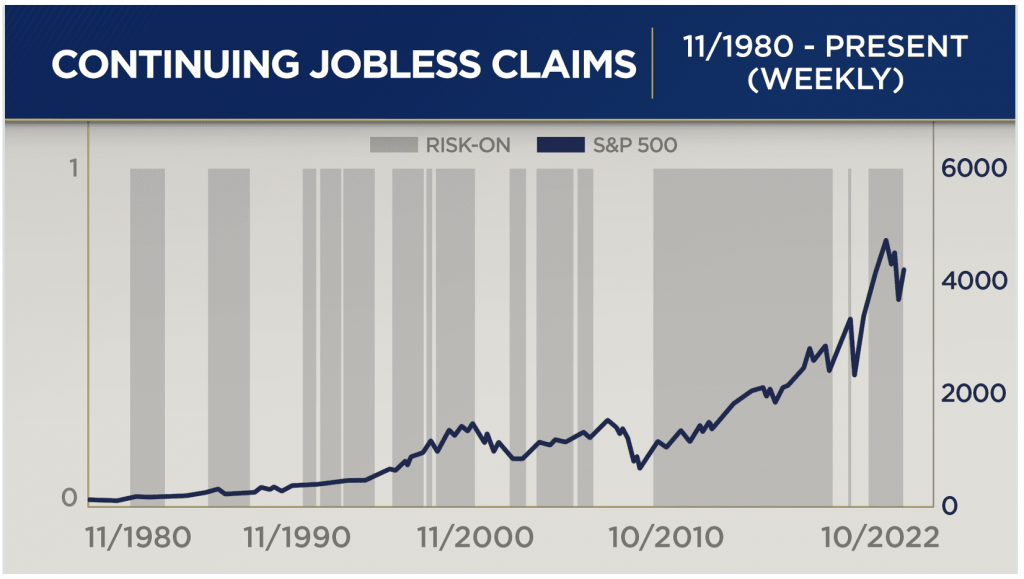

Normal people don’t know what’s about to happen. Abnormal people like me who read The Times while in London hover over the business section, while the ‘most-read’ part of the newspaper concentrates on why Nicole Kidman’s a loved icon with arms to die for!
What are they talking about? I don’t know, but I do know stock markets are eagerly watching the data drop in the US over Thursday and Friday. And they’re desperate to hear the Fed Boss Jerome Powell give his address at the Jackson Hole central banker conference in Wyoming in the US.
Fed watchers expect Powell to reinforce the central bank’s goal of squashing inflation and keeping expectations about future price gains in check.
If he’s too scary on interest rates, the stock market will sell off, but if he’s measured saying the data will determine the Fed’s moves, then stocks will spike higher.
Respected market predictor Marko Kolanovic, JPMorgan’s Chief Global Market Strategist, told CNBC that the recent market rally has been driven by short covering, not multiple expansion. That’s code for short sellers are worried that they might be wrong in over-selling growth/tech stocks so they bought them back to reduce the potential losses that would come from the Fed easing up on rate rises.
What would make the Fed do that? The answer is data, which says inflation is coming down, and that’s why US economic data over the next two days will be important. On Thursday we see the latest reading on US economic growth for the June quarter. The early readings on this quarter said the US economy contracted for the second straight quarter, hitting a widely accepted rule of thumb for a technical recession.
Last year the US economy grew at 5.7% (the fastest calendar year expansion since 1984), which explains why inflation (as measured by the Consumer Price Index) was 9.1% in June but fell to 8.5% in July.
On Friday, the Fed’s preferred measure of inflation, the Personal Consumption Expenditures (PCE) price index, is released. If this is less than the last reading, which was 6.8% in June as compared to the same period last year, then stocks should spike, and vice versa. That’s both on Wall Street and in Oz.
If the PCE news says inflation is falling and the economic growth reading says the US is contracting, the stock market influencers will buy stocks on the basis that rate rises will be smaller and fewer in the future. And vice versa. It’s why economic data out of the US will be watched closely by the market.
The last reading on economic growth for the June quarter was 0.9%, but there are three of these before we work out what really happened. If it’s a bigger number, stocks will rise, provided it’s not too much bigger.
Economics is a numbers game!
Interestingly, CNBC’s Jim Cramer has a charts guy called Ralph Vince, who’s ignoring the data drop. He says, “the stock market should be able to keep trending higher in the near term”.
“The charts, as interpreted by Ralph Vince suggest that this market can keep drifting higher for the next few months, as long as employment stays strong,” Cramer told the CNBC audience. “Please don’t get too complacent as there are signs that not all is well as we go into the final third of the year.”
Vince thinks the US labour market is crucial for the economy, profits and stock prices.

The above chart of claims for government assistance from those who’ve lost their jobs is giving Vince confidence that the US economy will help stocks sneak higher. “That’s good news for the broader economy, even if it makes the Fed more likely to raise rates aggressively down the road,” Cramer explained. “But this stubbornly resilient job market also offsets some of the damage from those rate hikes.”
Marko Kolonovic of JPMorgan (mentioned above) also has a positive view on stocks for the rest of the year. He noted that while some investors were short the market “people are not long”, except for a few. He added that as more investors become long the market, the market will get more of a boost.
I keep saying a sell off is on the cards after a big bounceback for stocks since the middle of June, but this should be a buying opportunity. And if this week’s economic data says inflation is falling, then Marko and my positivity about stocks going forward are justified.